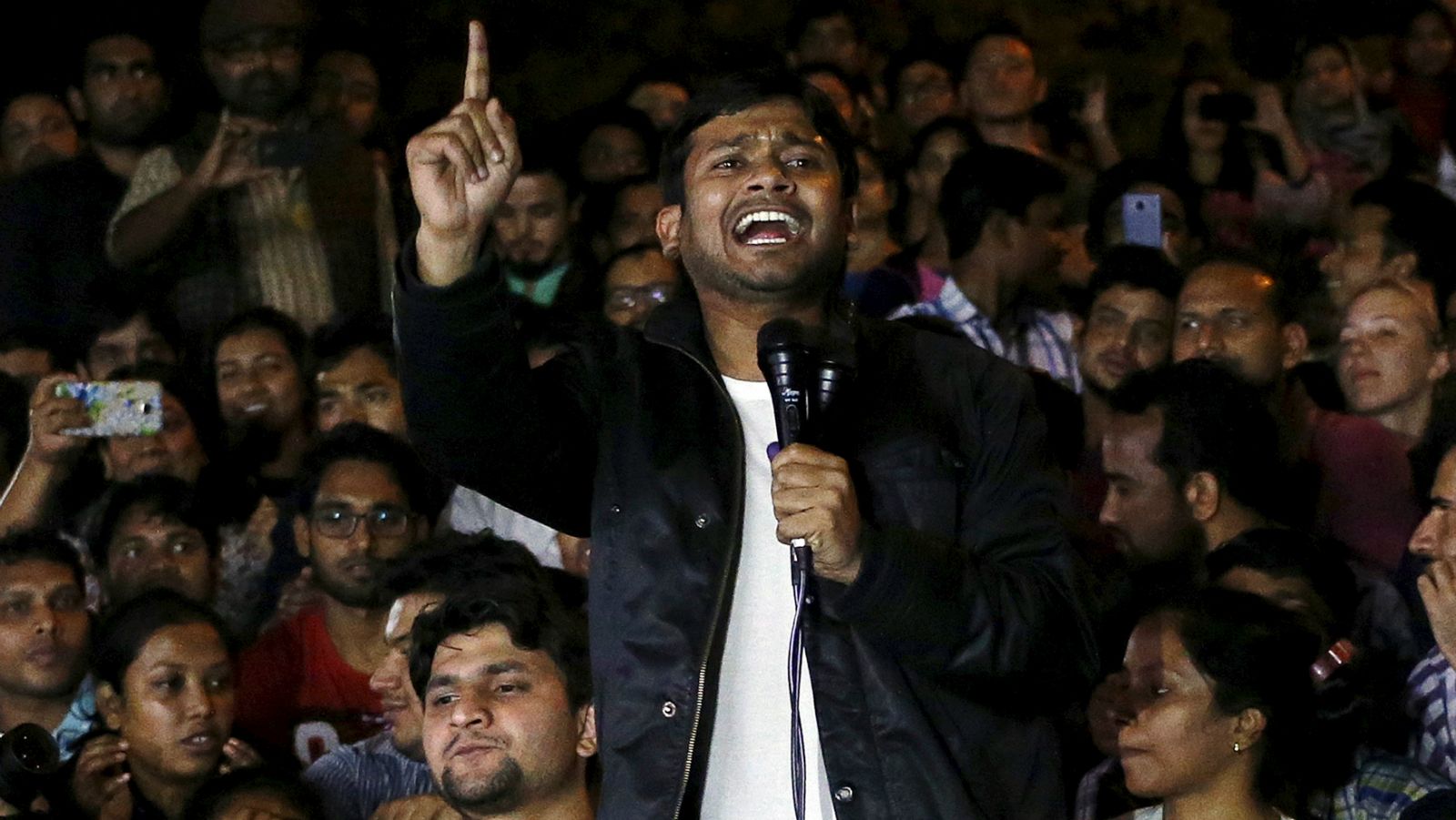"Kanhaiya Kumar And The Left Are Guilty Of Doing What The Right Is Doing"

NEW DELHI: On February 14, I had written a letter to ‘Kanhaiyas and Umars’— and four days after that in Delhi, we had marched for JNU in thousands. Despite the march being a huge success in terms of attendance, I did not leave as enraptured. I wondered why? Looking back, I stand vindicated in my sense of malaise upon descrying that the march was -- in spirit, exertion and execution -- one not for JNU primarily, and not at all for larger issues, but for Kanhaiya Kumar alone. A lot of slogans raised on the occasion, and almost all that came from the lorry where the who’s who of the Left in India were ensconced in, did what one historically associates the Right with doing: constricting and tapering all attention and focus to a cult. Slogans like “Veer Kanhaiya, Veer Kanhaiya” belaboured a hundred times but no mention of an Umar Khalid or an Anirban from the juggernaut little helped the meatier cause that the movement pledged to embark on.
For me, it is important to remember these nuances and niceties today. Because the movement has progressed in the direction that they insinuated. A few people have – thank goodness – talked about the huge problems and persuasive but myopic purple prose that Kanhaiya Kumar’s historic(?) speech buttressed. But what was even more shocking – or was it? – was how he would talk about the event, about Afzal Guru, about Umar Khalid and of course, about Kashmir. The humble and confused question is: how are his responses in the scores of interviews and speeches any different from any centrist nationalist mainstream-ist response to these dubieties and disputes? The zero hour is when he posits Afzal Guru against Rohith Vemula, thus refusing to acknowledge the existence of any debate regarding judicial bias and proclivities. For Kumar, while Guru does not enjoy the possibility of being discussed as a victim of any kind and degree in the face of the state as Rohith Vemula, the peasants and soldiers are unproblematically united. Both a peasant and a soldier oil the wheels of the nation’s dignity and progress, and also are victims of class inequality, but a Kashmiri victim and a Dalit victim must not be talked about in the same breath. Okay, you doubt the victim status of the former. Fair enough. But to see him in opposition to the Dalit student victim and choose one over the other as an ‘icon’ – to use his word – with ease and phlegm brings Kumar dangerously close to his political and ideological adversaries.
On social media, one did see a feeling of discomposure in how he responded to questions about Umar Khalid and Anirban Bhattacharya. (That he was hardly even asked about SAR Geelani speaks volumes about the horror we should feel.) Repeated questioned, he would almost say nothing since ‘the matter is sub judice’ and he has full faith in the judiciary. The entire movement – each and every one in it – spoke for Kumar when his matter was sub judice – it still is, isn’t it? – and he was in police and in judicial custody. They unequivocally said that in being arrested, he was a victim of state power and marched FOR him. Neither Kumar, nor the movement, would speak of Khalid and Bhattachaya, forget the professor, in similar language. That has indeed (re-)raised questions about the canons and convictions, mores and morals, norms and sanctions, dogmas and doctrines of the Left in India (or ‘the “Indian” Left?). In the much more small-scale march demanding the release of the two research scholars against whom, every informed person knows, not an iota of evidence is there, Kumar joins at the wind-up and barring his salute to the two comrades, avoids speaking about the demand for their release and judicial and state parti pris. Kumar’s intervention -- or the lack of it – at that time was also crucially important as the country was listening to him, close on the heels of the post-bail speech. But he had by then predictably started to take the easy route of laying down a smokescreen of hyperbole and eloquence.
But tougher questions must be asked of ourselves, of all the people who feel part of the movement. Do we need a Hindi-speaking, high-caste Hindu male from the ‘mainland India’ for us to come out of our homes to join the march against his victimization by the state? Is the Left in the country equally all ears to a Muslim activist? To an activist in the same cause but non affiliated to any party? To one speaking about the north-eastern regions of the country? To one speaking about Kashmir and its people? To one speaking about sex workers and their professional and social rights?
As I write this, unfortunately immediate appendices to the above questions follow: what if the arrested are many times in number but from Telangana and do not speak Hindi? What if they are tribals from Chhattisgarh?
Mercifully, a part of the left has shifted attention from the US to the caste question blighting the country for millennia. It should not take us another century to realize that we are not realizing a disordered heap of other oppressions. More power to the movement!
(Jyotirmoy Talukdar is a research scholar in the Department of English at the University of Delhi. The view expressed in the article is his own and does not reflect the view/position of The Citizen).



